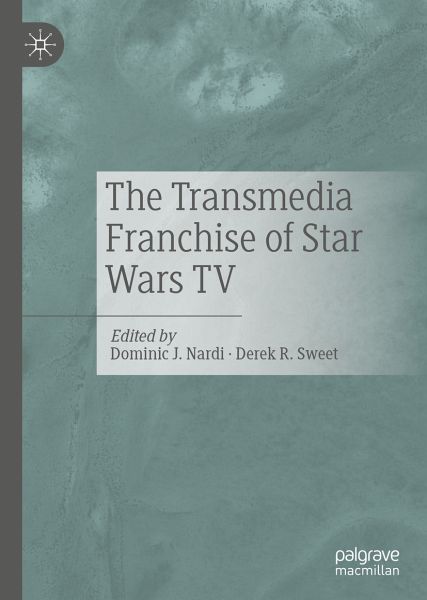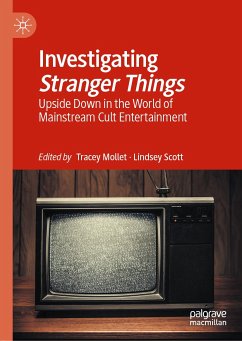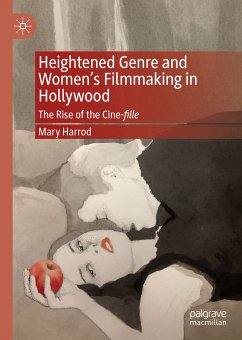
The Transmedia Franchise of Star Wars TV (eBook, PDF)
Versandkostenfrei!
Sofort per Download lieferbar
80,95 €
inkl. MwSt.
Weitere Ausgaben:

PAYBACK Punkte
40 °P sammeln!
While previous work on the Star Wars universe charts the Campbellian mythic arcs, political representations, and fan reactions associated with the films, this volume takes a transmedial approach to the material, recognizing that Star Wars TV projects interact with and relate to other Star Wars texts. The chapters in this volume take as a basic premise that the televisual entrants into the Star Wars transmedia storyworld are both important texts in the history of popular culture and also key to understanding how the Star Wars franchise-and, thus, industry-wide transmedia storytelling strategies...
While previous work on the Star Wars universe charts the Campbellian mythic arcs, political representations, and fan reactions associated with the films, this volume takes a transmedial approach to the material, recognizing that Star Wars TV projects interact with and relate to other Star Wars texts. The chapters in this volume take as a basic premise that the televisual entrants into the Star Wars transmedia storyworld are both important texts in the history of popular culture and also key to understanding how the Star Wars franchise-and, thus, industry-wide transmedia storytelling strategies-developed. The book expands previous work to consider television studies and sharp cultural criticism together in an effort to bring both long-running popular series, long-ignored texts, and even toy commercials to bear on the franchise's complex history.
Dieser Download kann aus rechtlichen Gründen nur mit Rechnungsadresse in A, B, BG, CY, CZ, D, DK, EW, E, FIN, F, GR, HR, H, IRL, I, LT, L, LR, M, NL, PL, P, R, S, SLO, SK ausgeliefert werden.












